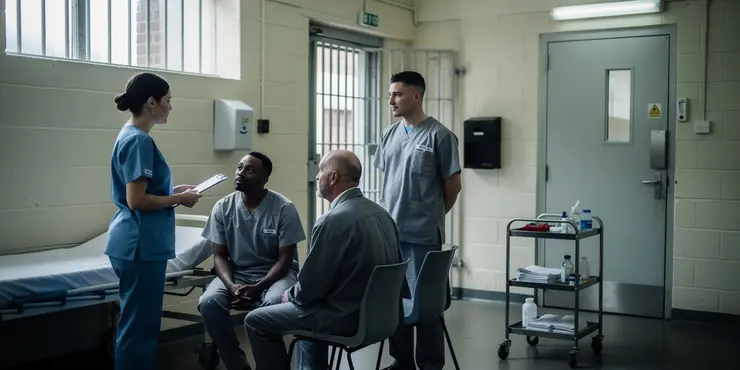
Find Help
More Items From Ergsy search
-
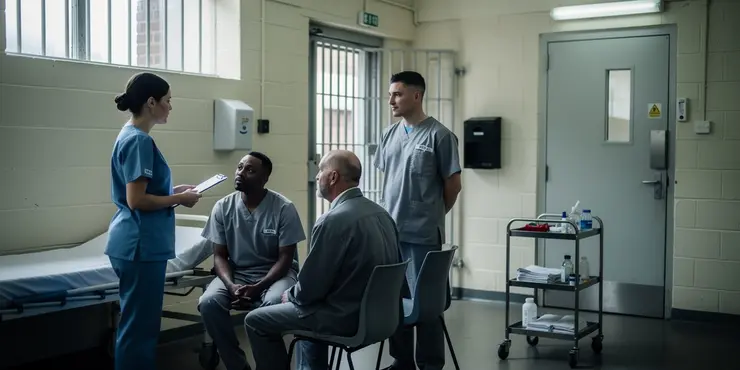
How are health services provided in prison?
Relevance: 100%
-
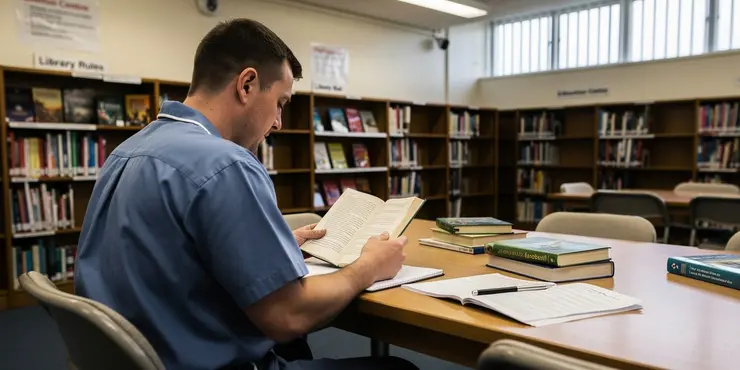
Is there a library service in the prison?
Relevance: 86%
-
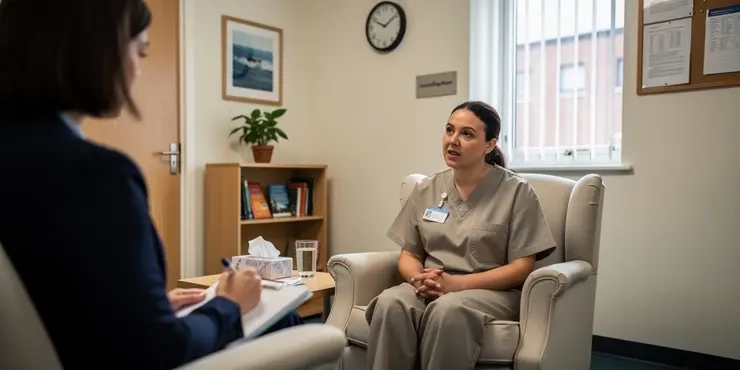
What are women's prisons like in the UK?
Relevance: 62%
-
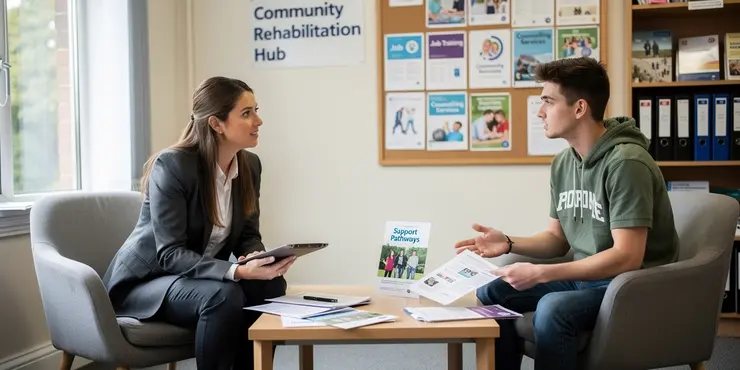
Are there alternatives to indefinite prison sentences?
Relevance: 59%
-
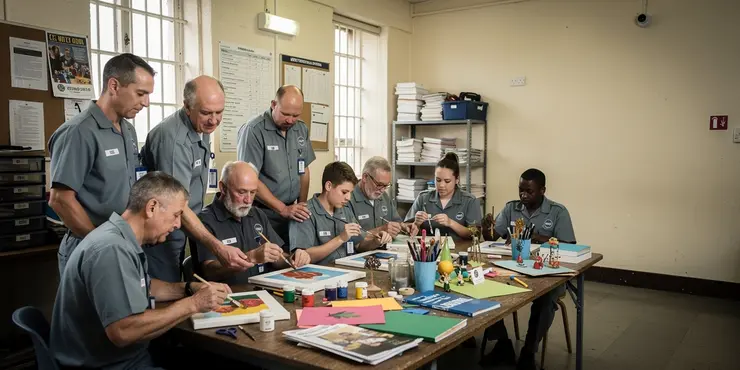
Do prisoners with indefinite sentences have the same privileges as others?
Relevance: 58%
-
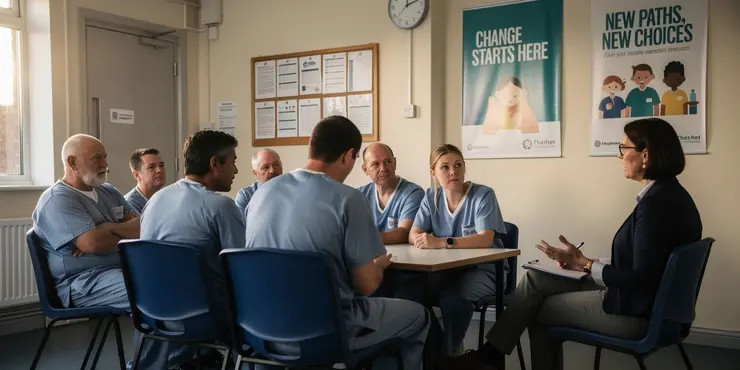
Are there special programs for prisoners with indefinite sentences?
Relevance: 58%
-
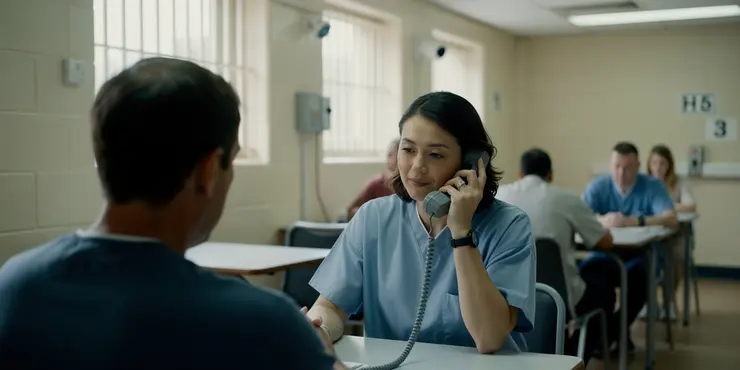
Are phone calls from prison free?
Relevance: 57%
-
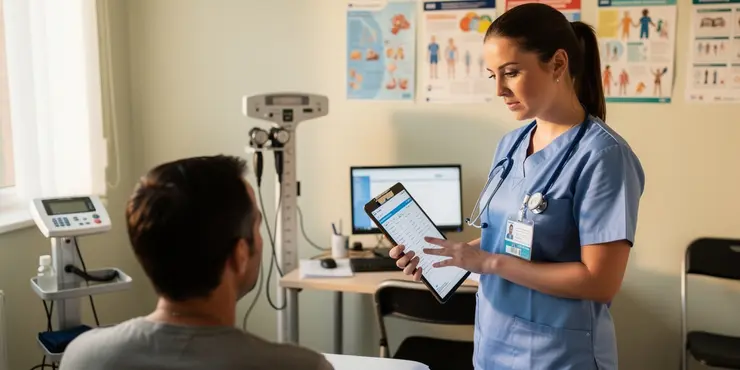
What to expect on the first day in a British prison.
Relevance: 57%
-
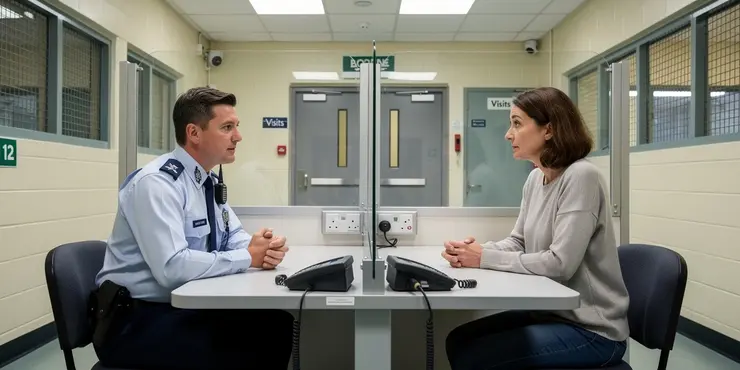
Will I meet with a prison officer?
Relevance: 56%
-
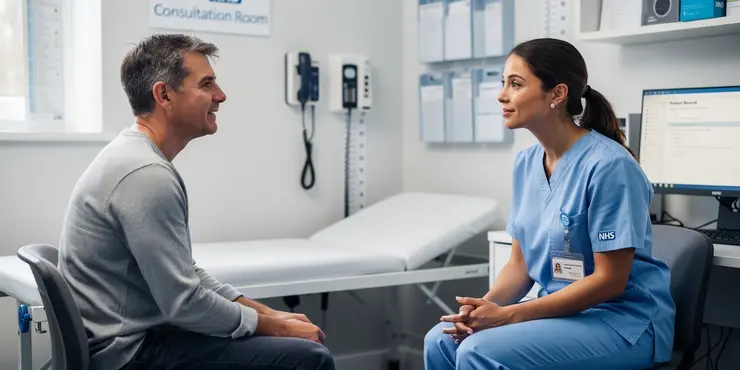
How can I contact someone in prison?
Relevance: 55%
-
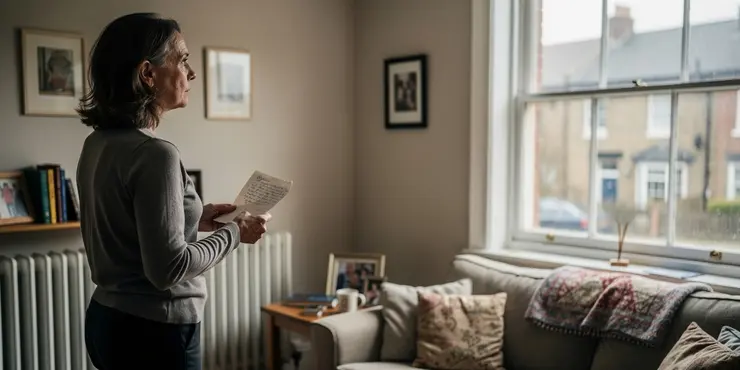
Someone I know has been sent to prison.
Relevance: 55%
-

What is an indefinite prison sentence?
Relevance: 54%
-
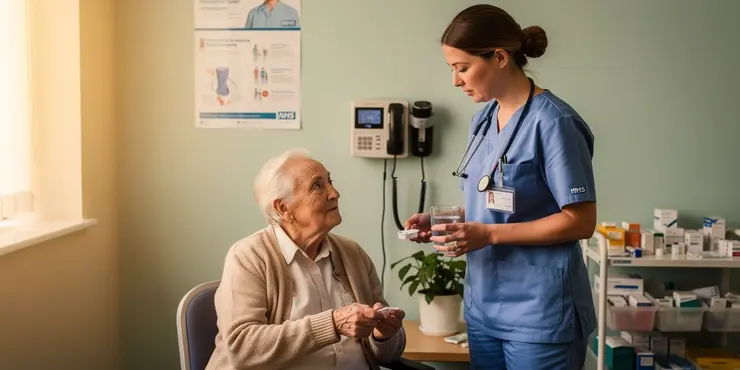
Do I get issued with prison clothing?
Relevance: 54%
-
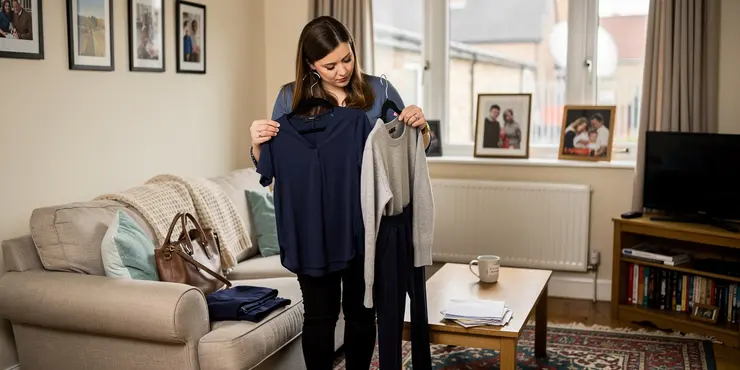
Visiting a Prisoner - What To Wear on a prison visit
Relevance: 53%
-
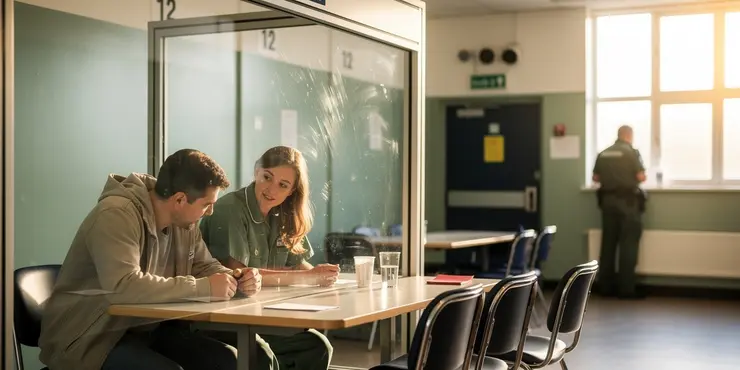
How often can I visit someone in prison?
Relevance: 52%
-
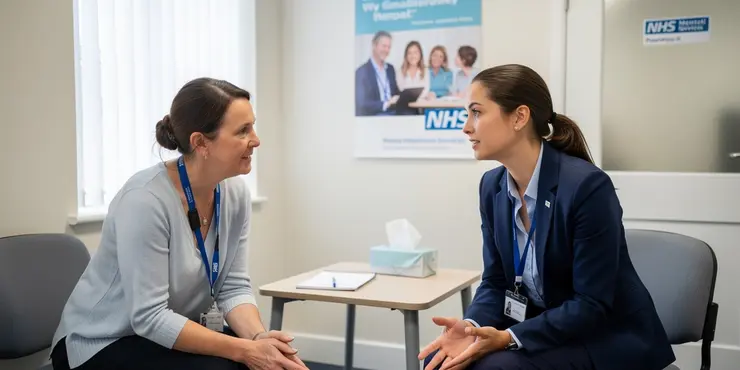
Mental Health Support Services in the UK
Relevance: 52%
-

What is an indefinite prison sentence?
Relevance: 51%
-
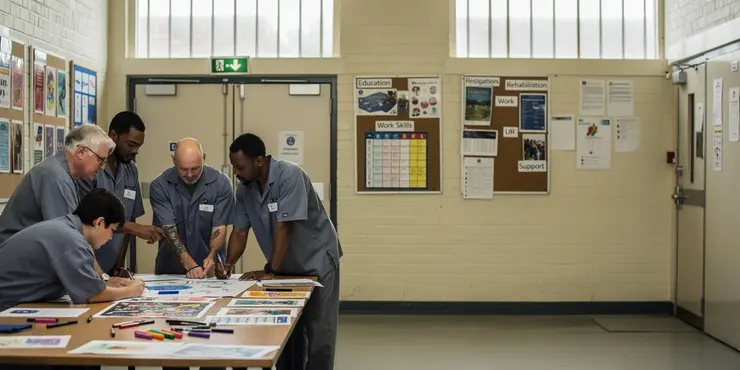
Is rehabilitation considered in indefinite prison sentences?
Relevance: 50%
-
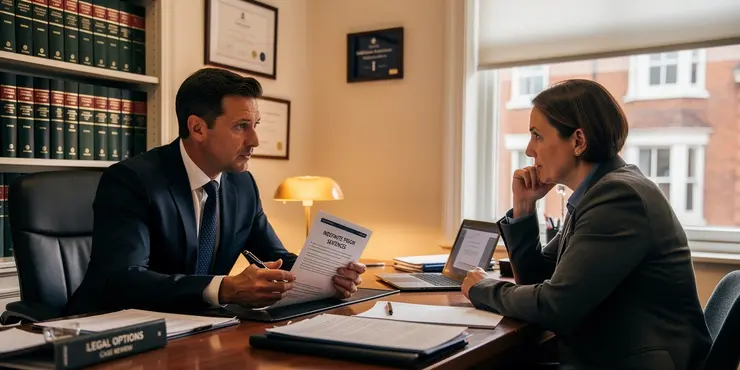
Are indefinite prison sentences given in all countries?
Relevance: 49%
-

Why do courts issue indefinite prison sentences?
Relevance: 49%
-

What items can I send to someone in prison?
Relevance: 48%
-
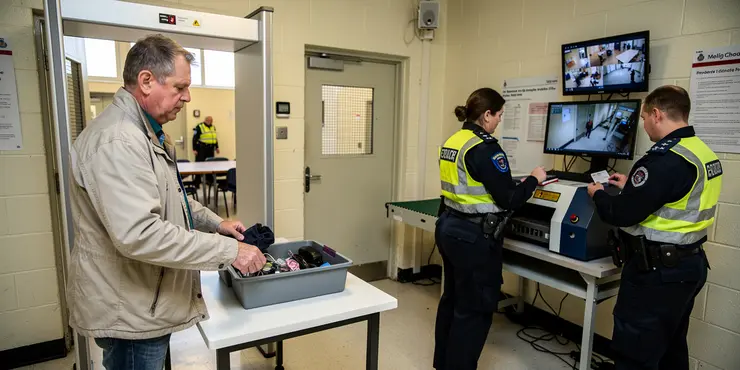
What should I expect when visiting a prison?
Relevance: 47%
-

Current Challenges in Youth Mental Health Services
Relevance: 47%
-
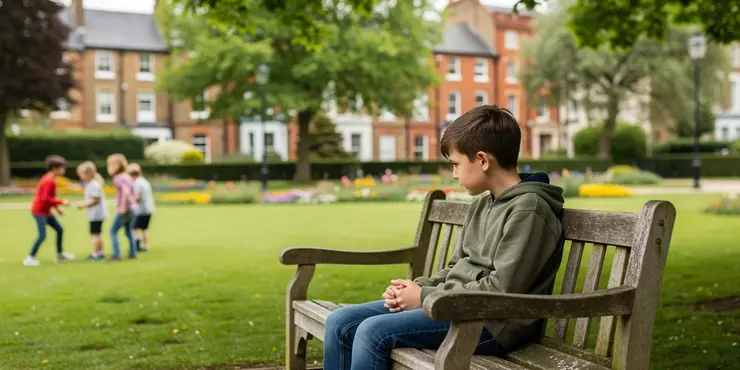
Navigating Mental Health Services for Children and Adolescents
Relevance: 46%
-
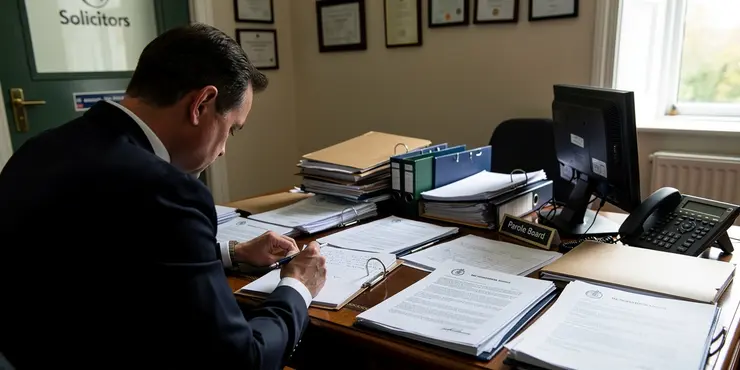
How does parole work with indefinite prison sentences?
Relevance: 46%
-
How frequently are prisoners with indefinite sentences reviewed for possible release?
Relevance: 46%
-
Can an indefinite prison sentence be appealed?
Relevance: 46%
-
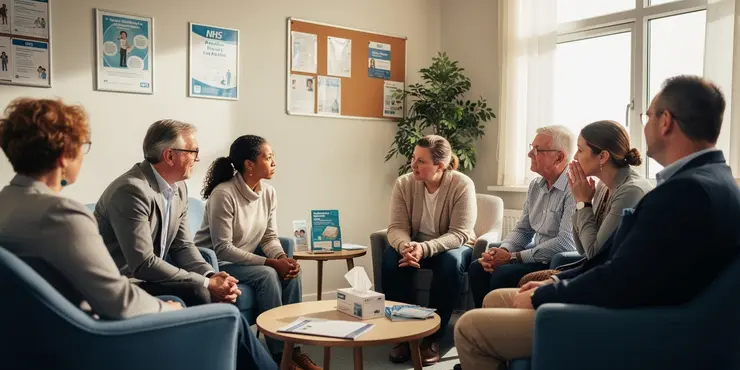
Support Services for Mental Health Amid Economic Uncertainty
Relevance: 44%
-
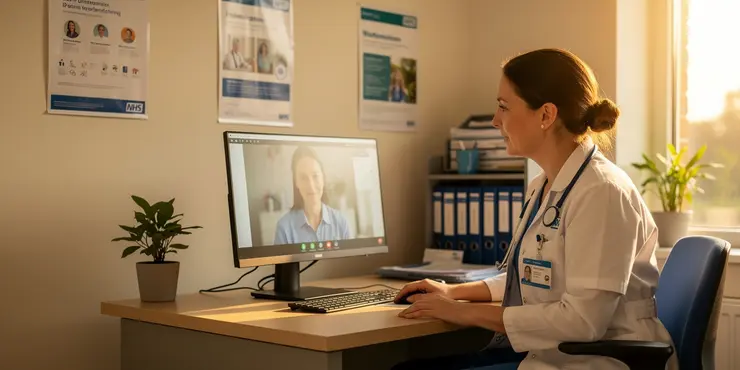
NHS to Expand Digital Health Services to Reduce Appointment Backlogs
Relevance: 43%
-
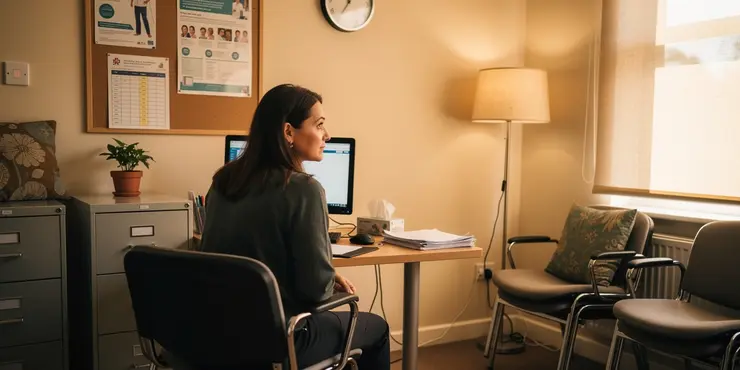
Mental Health Services Struggle to Cope Amid Record Demand
Relevance: 43%
-

Who decides when a person with an indefinite prison sentence is released?
Relevance: 42%
-
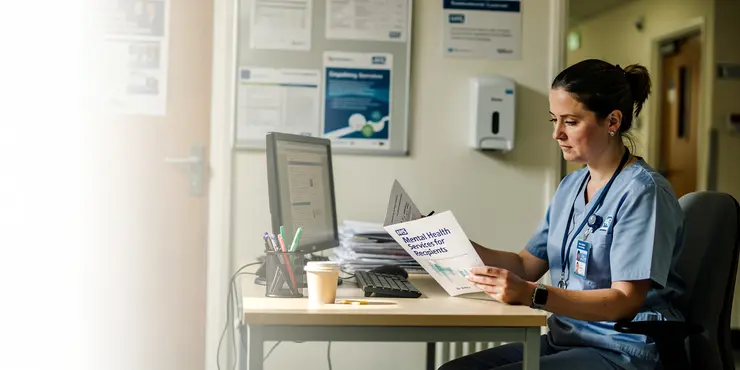
New Report Highlights Gaps in Mental Health Services for Welfare Recipients
Relevance: 41%
-
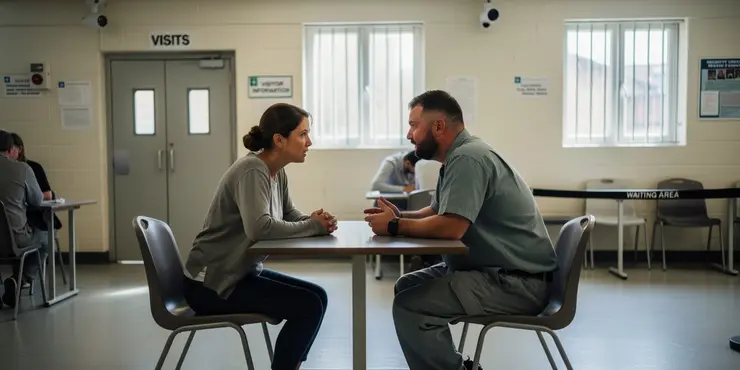
Can I visit them in prison?
Relevance: 40%
-

How does an indefinite prison sentence differ from a life sentence?
Relevance: 39%
-
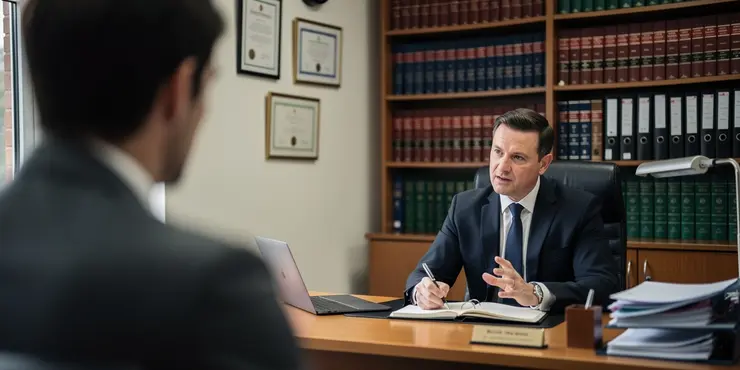
What are some examples of crimes that might result in an indefinite prison sentence?
Relevance: 38%
-
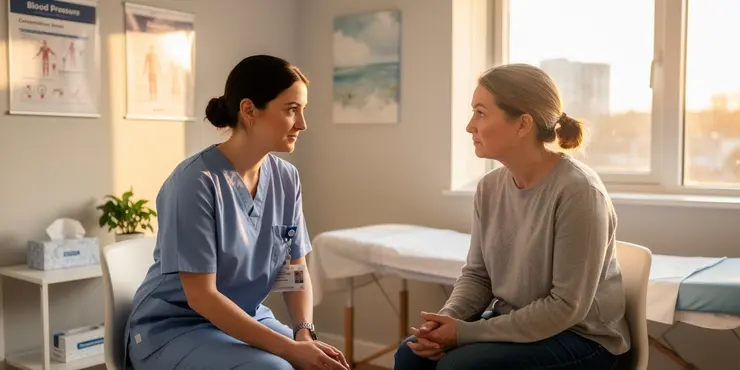
NHS-led Provider Collaboratives: improving mental health, learning disability and autism services
Relevance: 37%
-
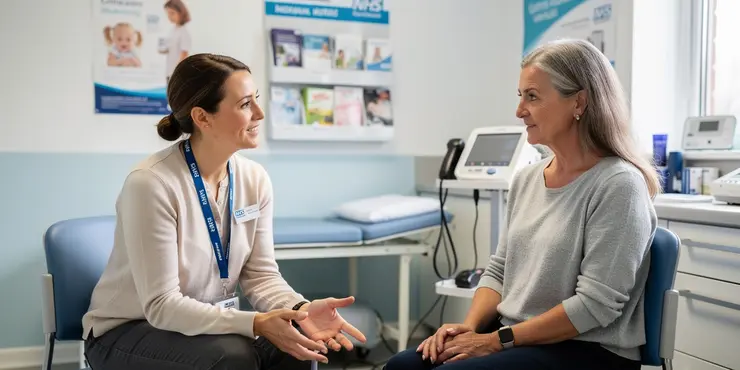
Social Prescribing Link Workers are part of new health and wellbeing services in NHS surgeries
Relevance: 36%
-
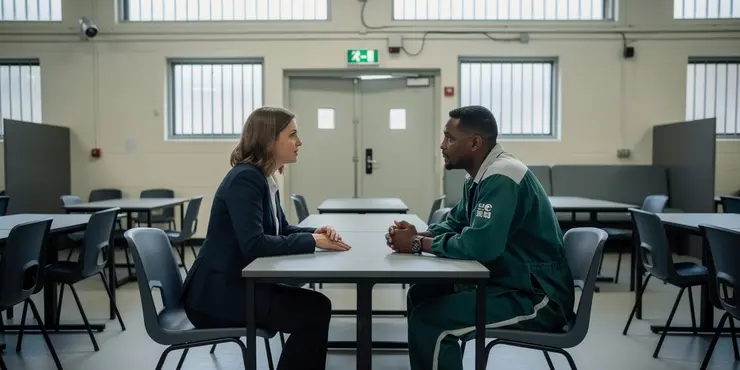
How can I advocate for an inmate's needs?
Relevance: 34%
-

Do I have to do Jury Service?
Relevance: 33%
-

Understanding the NHS: How to Access Services
Relevance: 33%
Introduction to Health Services in UK Prisons
The provision of health services in UK prisons is a critical component of the justice system, ensuring that individuals who are incarcerated receive necessary medical care. This is important not only for the well-being of prisoners but also for public health outcomes, as the vast majority of inmates eventually rejoin society. Health services in prisons are designed to address both immediate medical needs and ongoing health conditions, ensuring continuity of care with community health services.
Structure of Healthcare in Prisons
In the UK, prison healthcare is primarily the responsibility of the National Health Service (NHS). Since the transfer of responsibility from the Prison Service to the NHS in 2006, there has been a concerted effort to standardize and improve the quality of healthcare received by prisoners. The NHS delivers health services in prisons through dedicated health teams that include doctors, nurses, mental health specialists, and support staff.
Types of Health Services Provided
Prison health services encompass a wide range of care comparable to what is available in the community. This includes general medical and dental services, mental health care, substance misuse treatment programs, and preventive services like vaccinations and health screenings. Mental health services are particularly crucial given the high prevalence of mental health issues among the prison population. Specialized programs are also in place to address infectious diseases, such as tuberculosis and HIV, which tend to have higher rates in the prison setting.
Mental Health and Substance Misuse
Mental health care is a significant component of prison health services, responding to conditions ranging from anxiety and depression to more severe mental health disorders. Services are often integrated with substance misuse treatment, as many individuals in prison experience overlapping challenges in these areas. Programs are in place to support detoxification, rehabilitation, and the management of addiction, focusing on recovery and reducing recidivism.
Challenges in Providing Healthcare
Despite efforts to deliver comprehensive healthcare in prisons, several challenges persist. Overcrowding can strain health services, making access to timely care more difficult. Additionally, there can be barriers in ensuring continuity of care when prisoners are released, which can adversely affect the management of chronic conditions and mental health. Staffing levels and retaining qualified professionals within the prison environment are ongoing concerns that impact service delivery.
Conclusion
Healthcare in UK prisons strives to meet the needs of a diverse and often vulnerable population. While significant strides have been made in aligning prison healthcare with community standards, ongoing challenges remain. Continuous improvements and collaborative efforts between the NHS, government agencies, and community organizations are vital to ensuring effective health service delivery and supporting the rehabilitation and reintegration of prisoners into society.
Introduction to Health Services in UK Prisons
Health services in UK prisons are very important. They help people in prison get the medical care they need. This is important for the health of people in prison and for everyone when they leave prison. Health services in prisons make sure people get help right away and get care for ongoing health problems. This care also connects with outside health services so people can keep getting the help they need.
How Healthcare Works in Prisons
In the UK, the National Health Service (NHS) looks after health in prisons. Before 2006, the Prison Service did this job, but now the NHS does. This change was made to make health care in prisons better and the same as what people get outside. In prisons, doctors, nurses, and mental health experts, along with support staff, work together as healthcare teams.
Types of Health Services Offered
Prisons provide health care just like outside communities. This includes doctor visits, dental care, mental health services, help with drugs, and preventive care such as vaccines and health checks. Mental health care is very important because many prisoners have mental health problems. Special programs also help with diseases that are more common in prisons, like tuberculosis and HIV.
Mental Health and Drug Use Issues
Mental health care is a big part of prison health services. It helps with problems like anxiety and depression. Some prisoners have serious mental health issues. These services often work together with drug treatment programs because many prisoners have both mental health and drug issues. Programs help with detoxing, rehab, and dealing with addiction. They aim to help prisoners recover and not go back to crime.
Problems in Giving Healthcare
Prisons try very hard to give good healthcare, but there are problems. Too many prisoners can make it hard for everyone to get care quickly. It is also tough to continue care when prisoners leave prison. This can make managing long-term health issues and mental health harder. Having enough staff and keeping good staff in prisons is also a challenge.
Conclusion
Healthcare in UK prisons aims to meet the needs of people who often need a lot of help. There have been many improvements to make prison healthcare like the care outside. But there are still problems to solve. The NHS, government, and other groups need to keep working together to improve health services. This helps prisoners get better and fit back into society.
Frequently Asked Questions
How are health services initiated in prison?
Health services in prison are typically initiated through a health screening upon intake, which assesses inmates for any immediate medical needs.
Are medical professionals available within prisons?
Yes, prisons usually employ or contract with healthcare professionals, such as doctors, nurses, and mental health specialists, to provide care to inmates.
What types of medical services are provided in prisons?
Prisons provide a range of medical services including general healthcare, emergency care, chronic disease management, mental health services, and dental care.
How do inmates access healthcare services in prison?
Inmates typically access healthcare services through a sick call request process, where they submit a request to see a healthcare provider.
Are there any costs associated with inmate healthcare?
In some jurisdictions, inmates may be required to pay a small co-pay for non-emergency healthcare services, although emergency care is typically free.
How is medication provided to inmates in prison?
Medications prescribed to inmates are dispensed by the prison pharmacy and delivered to inmates either directly or through medication call lines.
What happens in case of a medical emergency in prison?
In case of a medical emergency, prison staff will contact medical professionals on site or transport the inmate to a local hospital for immediate care.
Are mental health services available in prisons?
Yes, many prisons offer mental health services such as counseling, psychiatric evaluations, and treatment for mental health disorders.
How do prisons handle contagious diseases?
Prisons implement protocols to manage contagious diseases, including isolation, medical treatment, and sometimes quarantine measures to prevent outbreaks.
Are there preventive health measures in place in prisons?
Yes, preventive measures such as vaccinations, health education, and screenings for diseases like tuberculosis and HIV are often part of prison healthcare.
Can inmates receive specialty medical care?
If medically necessary, inmates may be taken to outside specialists or hospitals for advanced or specialized medical care.
How are chronic conditions managed in prisons?
Chronic conditions such as diabetes and hypertension are managed through regular check-ups, medication, and diet management.
Do prisons provide dental care to inmates?
Yes, most prisons offer dental care including routine cleanings, fillings, and extractions when necessary.
How does confidentiality work with inmate healthcare information?
Inmates' healthcare information is protected by medical privacy regulations, though there are some exceptions related to safety and security.
What role do correctional officers play in inmate healthcare?
Correctional officers assist in facilitating access to healthcare by escorting inmates to medical appointments and responding to medical emergencies.
Are there any special healthcare services for elderly inmates?
Prisons often have specific healthcare services for elderly inmates, including management of age-related conditions and mobility assistance.
How is the quality of healthcare in prisons monitored?
The quality of prison healthcare is monitored through internal audits, accreditation bodies, and sometimes external oversight by governmental agencies.
Are health services in prisons subject to the same standards as community healthcare?
Prison health services are generally expected to meet community healthcare standards, though challenges and limitations can affect their delivery.
Can inmates refuse medical treatment?
Inmates generally have the right to refuse medical treatment, although there are exceptions, particularly if refusal poses a risk to others or prison security.
How is healthcare funded in prisons?
Prison healthcare is funded through government budgets allocated for corrections and sometimes supplemented by grants or external partnerships.
How do health services start in prison?
When people go to prison, they need doctors and nurses to help them. Here's how it starts:
- First, a doctor or nurse checks the person to see what they need.
- Then, they make a plan to help the person stay healthy.
- If the person feels sick, they can ask to see a doctor or nurse.
- The doctors and nurses check people regularly to make sure they are okay.
Here are some tools that might help:
- Pictures: Use pictures to better understand what happens.
- Trusted Helper: Ask a friend or family member to explain if you are confused.
When someone goes to prison, the health team checks them at the start. This check helps find out if they need any quick medical help.
Can you see a doctor in prison?
In prison, you can see a doctor or nurse. They can help if you are sick or hurt.
If you feel unwell, you can talk to a prison officer. They will help you see a doctor or nurse.
You can also ask for medicine if you need it.
If you find reading hard, you can ask someone to help you understand.
Using pictures or audio might also help you understand better.
Yes, prisons have doctors, nurses, and mental health helpers to take care of the people who live there.
What kind of healthcare do people get in prison?
People in prison can see doctors and nurses.
They get help for when they are sick or hurt.
They can see dentists for their teeth.
They can talk to someone if they feel sad or worried.
Tools to help:
- A friend or family member can help explain.
- Pictures or videos can show how doctors help.
Prisons have doctors and nurses to help people. They can help if you're sick, have an emergency, need medicine for a long-time illness, feel sad or worried, or need your teeth checked.
How do people in prison get healthcare help?
People in prison can see a doctor or nurse to help them feel better if they are sick or hurt.
If someone in prison needs to see a doctor, they can tell a guard or a staff member. The guard or staff will help them go to see the doctor or nurse.
It is important for everyone, even people in prison, to get help if they are sick or hurt.
Some ways to help you understand:
- Ask someone to read it with you.
- Use pictures to help you understand.
- Take your time, there is no rush.
People in prison can see a doctor or nurse. They need to ask first. This is called a sick call request. They write down that they want to see a healthcare person.
Do prisoners have to pay for healthcare?
In some places, people in jail might need to pay a little money when they see the doctor for non-emergency problems. But if it's an emergency, they usually don't have to pay.
How do people in prison get their medicine?
People who live in prison still need their medicine if they are sick or have a condition. Here is how they get it:
- Doctors or nurses in the prison check what medicine they need.
- The medicine is given at certain times during the day.
- Prison staff help make sure everyone gets their medicine when they need it.
If reading is difficult, you can use tools to help, like:
- Audio books – listen instead of reading.
- Pictures – use images to understand better.
- Ask someone you trust to explain things to you.
Prison doctors give medicine to people in prison. The prison pharmacy gets the medicine ready. Then, they give the medicine to the people in prison. Sometimes, the people get their medicine from special lines where they go to pick it up.
What if someone gets very sick in prison?
If someone gets very sick or hurt in prison, the staff will call doctors or nurses who work there, or they will take the person to a nearby hospital to get help right away.
Can people in prison get help for their feelings?
People in prison can get help for their feelings and thoughts. This is called mental health help. It's like seeing a special doctor for your mind.
If someone in prison feels sad or worried, they can talk to a friendly helper. This helper can be a counselor or therapist.
These helpers can listen to how people feel. They can also teach ways to feel better, like calm breathing or talking about feelings.
It's important for everyone, even people in prison, to get help when they feel bad inside their mind.
If you or someone you know needs help, it's good to ask for it. Helpers are there to listen and support you.
Yes, lots of prisons help with mental health. They have talking sessions, check-ups, and treatment for mental health problems.
If you need extra help to understand, you can try using tools like text-to-speech software or ask someone to read it with you.
How do prisons manage sickness that spreads?
Prisons have special ways to keep people safe from getting sick. When someone is sick, they might:
- Keep the sick person away from others. This is called "isolation."
- Make sure everyone washes their hands often.
- Give people medicine to help them feel better.
- Check people for signs of sickness.
Tools to help understand:
- Pictures or videos about what to do when you are sick.
- Simple reminders to wash hands and stay clean.
- Easy-to-read charts about symptoms of sickness.
Prisons have rules to stop the spread of diseases. They do things like keeping sick people away from others, giving them medicine, and sometimes keeping them alone to make sure diseases don't spread.
Are there ways to keep people healthy in prisons?
Yes, people in prison can get help to stop them from getting sick. They can get shots, learn about health, and get checked to see if they have diseases like TB or HIV.
Can people in prison get special medical care?
People in prison can see special doctors. These doctors help with big health problems. If someone in prison is sick or hurt, they can get the help they need.
It is important to ask staff for help if needed.
If someone in prison needs special medical help, they can go to doctors or hospitals outside the prison.
How do prisons take care of people with long-lasting health problems?
People in prison who are sick for a long time get special care. The doctors and nurses help them feel better. This is how they stay healthy:
- Regular check-ups: The doctors see them often to make sure they are okay.
- Medicine: They are given the right medicine to help them feel better.
- Healthy food: They eat food that is good for their bodies.
- Exercise: They can do exercises to stay strong and fit.
- Support: There are people they can talk to if they feel sad or worried.
Pictures and videos can also help understand better. Talking to someone about it can help too.
Long-lasting health problems like diabetes and high blood pressure are taken care of with regular doctor visits, medicine, and healthy eating.
Do prisons help with teeth care for people inside?
Yes, most prisons have a dentist. They help with cleaning teeth, fixing cavities, and pulling out teeth if needed.
How is inmate health information kept private?
Inmates have health information that needs to be kept secret. This means only certain people can see it. Here is how it works:
- Doctors and nurses can see health information to take care of the inmate.
- Health information is not shared with everyone.
- Sometimes, information can be shared if it is very important for safety.
Tools to help understand this are:
- Ask simple questions if you are confused.
- Use pictures or diagrams to learn more.
People in prison have a right to keep their health information private. There are laws that protect this information. But sometimes, for safety reasons, some information might be shared.
What do correctional officers do to help inmates stay healthy?
Correctional officers help people in prison get to their doctor appointments. They also help in case of a medical emergency.
Is there special healthcare for older people in prison?
Do older people in prison get special medical help?
If you need help, ask someone to read with you. You can also use tools like audiobooks to listen to the questions.
Prisons have special healthcare help for older people. This includes taking care of health problems that come with getting older and helping them move around if they need it.
How do we check the quality of healthcare in prisons?
We see how good the healthcare is by checking it regularly.
Some people who are experts, like doctors and nurses, visit the prison. They make sure everything is okay.
These experts look at:
- How the doctors and nurses take care of people.
- If people get the medicine they need.
- If the buildings are clean and safe.
- If the equipment works well.
They write reports about what they find. This helps to make things better.
You can use tools to help you read better. Things like:
- Reading with your finger under the words.
- Listening to someone read aloud.
- Using reading apps with audio support.
People check how good healthcare is in prisons. They do this in a few ways. First, people inside the prison do regular checks. Then, special groups give out awards if the healthcare is good. Sometimes, government groups from outside come to check too. These checks make sure everyone gets the help they need.
Do people in prison get the same health care as people outside?
Let's find out if people in prison get the same kind of health care as people who are not in prison.
If you find it hard to read, you can ask someone to help you.
You can also use tools like reading rulers or apps that read the text out loud for you.
Health care in prison should be as good as health care outside of prison. But, sometimes it is hard to make this happen.
Can people in prison say no to medical care?
People in prison might wonder if they can say no to a doctor or nurse. Here’s what to know:
- Prisoners have the right to say no to medical care.
- Sometimes, if a person is very sick, the prison may give care to keep them safe.
- If you have questions, it’s good to talk to someone you trust, like a lawyer or a family member.
Use tools like pictures or videos to understand this better. Talking with someone can also help.
People in prison usually can say no to medical help. But sometimes they can't say no if it would be dangerous for others or cause problems in the prison.
How do prisons pay for healthcare?
Prisons need money to take care of people who are sick or hurt. This is called healthcare. Here is how it works:
- Prisons get money from the government to help pay for doctors and nurses.
- The government helps because it is important for everyone, even people in prison, to see a doctor when they are sick.
- Sometimes, special groups give extra money to help with healthcare in prisons.
Using pictures or videos can help make this clearer. Talking to someone who understands can be helpful too.
Money for healthcare in prisons comes from the government. This money is part of a budge that pays for looking after people in prison. Sometimes prisons get extra money from special gifts or by working with other groups.
Useful Links
This website offers general information and is not a substitute for professional advice.
Always seek guidance from qualified professionals.
If you have any medical concerns or need urgent help, contact a healthcare professional or emergency services immediately.
Some of this content was generated with AI assistance. We’ve done our best to keep it accurate, helpful, and human-friendly.
- Ergsy carfully checks the information in the videos we provide here.
- Videos shown by Youtube after a video has completed, have NOT been reviewed by ERGSY.
- To view, click the arrow in centre of video.
- Most of the videos you find here will have subtitles and/or closed captions available.
- You may need to turn these on, and choose your preferred language.
- Go to the video you'd like to watch.
- If closed captions (CC) are available, settings will be visible on the bottom right of the video player.
- To turn on Captions, click settings .
- To turn off Captions, click settings again.
More Items From Ergsy search
-

How are health services provided in prison?
Relevance: 100%
-

Is there a library service in the prison?
Relevance: 86%
-

What are women's prisons like in the UK?
Relevance: 62%
-

Are there alternatives to indefinite prison sentences?
Relevance: 59%
-

Do prisoners with indefinite sentences have the same privileges as others?
Relevance: 58%
-

Are there special programs for prisoners with indefinite sentences?
Relevance: 58%
-

Are phone calls from prison free?
Relevance: 57%
-

What to expect on the first day in a British prison.
Relevance: 57%
-

Will I meet with a prison officer?
Relevance: 56%
-

How can I contact someone in prison?
Relevance: 55%
-

Someone I know has been sent to prison.
Relevance: 55%
-

What is an indefinite prison sentence?
Relevance: 54%
-

Do I get issued with prison clothing?
Relevance: 54%
-

Visiting a Prisoner - What To Wear on a prison visit
Relevance: 53%
-

How often can I visit someone in prison?
Relevance: 52%
-

Mental Health Support Services in the UK
Relevance: 52%
-

What is an indefinite prison sentence?
Relevance: 51%
-

Is rehabilitation considered in indefinite prison sentences?
Relevance: 50%
-

Are indefinite prison sentences given in all countries?
Relevance: 49%
-

Why do courts issue indefinite prison sentences?
Relevance: 49%
-

What items can I send to someone in prison?
Relevance: 48%
-

What should I expect when visiting a prison?
Relevance: 47%
-

Current Challenges in Youth Mental Health Services
Relevance: 47%
-

Navigating Mental Health Services for Children and Adolescents
Relevance: 46%
-

How does parole work with indefinite prison sentences?
Relevance: 46%
-
How frequently are prisoners with indefinite sentences reviewed for possible release?
Relevance: 46%
-
Can an indefinite prison sentence be appealed?
Relevance: 46%
-

Support Services for Mental Health Amid Economic Uncertainty
Relevance: 44%
-

NHS to Expand Digital Health Services to Reduce Appointment Backlogs
Relevance: 43%
-

Mental Health Services Struggle to Cope Amid Record Demand
Relevance: 43%
-

Who decides when a person with an indefinite prison sentence is released?
Relevance: 42%
-

New Report Highlights Gaps in Mental Health Services for Welfare Recipients
Relevance: 41%
-

Can I visit them in prison?
Relevance: 40%
-

How does an indefinite prison sentence differ from a life sentence?
Relevance: 39%
-

What are some examples of crimes that might result in an indefinite prison sentence?
Relevance: 38%
-

NHS-led Provider Collaboratives: improving mental health, learning disability and autism services
Relevance: 37%
-

Social Prescribing Link Workers are part of new health and wellbeing services in NHS surgeries
Relevance: 36%
-

How can I advocate for an inmate's needs?
Relevance: 34%
-

Do I have to do Jury Service?
Relevance: 33%
-

Understanding the NHS: How to Access Services
Relevance: 33%


